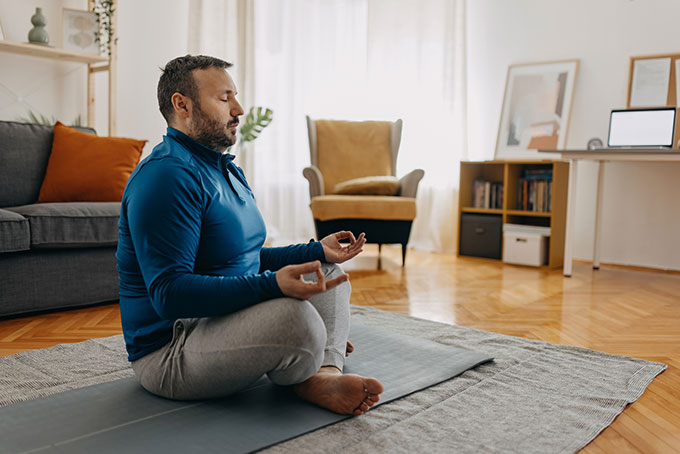Mental health
- 1
- 2
- 3
- 2
- 1
- 3
- 2
- 3
- 1
Suicide Call Back Service provides phone and online counselling for anyone struggling with their mental health including anxiety, depression, feeling low, stressed or having suicidal thoughts.
Suicide Call Back Service has a number of resources available that can help you through this difficult time. If it is an emergency call 000.

Grief, loss and 'Sorry Business'
Grief is an emotional response to loss, which might include the death of a loved one, loss of health, ending of a relationship, loss of a job, or a loss of cultural connection, such as moving off country. It is important to acknowledge and express those feelings without judgement.
Read article
Depression
Bipolar disorder and suicide: Breaking down the stigma to save more lives
You might be surprised to learn that the suicide rate for people living with bipolar is between 10-30 times higher than the general population In fact, according to the Black Dog Institute, they account for up to 25% of all suicides.
Read article
What is
What are mood disorders?
Mood disorders can often cause severe and prolonged changes in mood and can affect your ability to engage in everyday life activities. Read here to learn about the causes, symptoms, and treatments available.
Read article
Relationships
Struggling to cope? Six reasons to reach out to family and friends
When facing challenges with our mental health, discussing it with those close to us might be the last thing we want to do. We might fear they won’t care or that we’ll be too vulnerable. However, opening up to someone can often make us feel much better. Here are six compelling reasons to reach out to someone when you’re finding it tough.
Read article
What is
What is a panic attack?
Around 40% of Australians will experience a panic attack at some point in their lifetime. Read our article on what a panic attack feels like and how to manage it.
Read article
Relationships
Signs of a toxic relationship
Things not going well in a relationship? There may be obvious things that aren’t working, but there are also subtle signs that something isn’t quite right. If you’re wondering what is going wrong, here are some signs of a toxic relationship.
Read article
Myths
Myths about schizophrenia
There are a lot of misunderstandings about schizophrenia that result in stigma. We’re working to reduce the stigma by busting some common myths.
Read article
Loneliness
How to build a strong support network
When it comes to our mental health and wellbeing, studies have shown that having a good support network with strong relationships you can count on, is vital. A support network refers to those people in your life that are there for you when you need them and can help you to achieve your goals. Read our tips on how to create a strong support network.
Read article
Myths
Myths about suicide
There are many suicide myths that cloud our judgement and stop us from reaching out to someone who may be suicidal. Here we separate myths such as, “Asking someone if they are suicidal will put the idea in their head.” to “Once a person feels suicidal, they will always feel that way.” from fact.
Read article
Depression
Depression symptoms - Am I depressed?
Depression is a consistent and intense state of sadness that is negatively impacting your life. Recognising depression symptoms can be the first step in getting help. Read our list of common symptoms you may be experiencing if you are depressed.
Read article
Relationships
Loneliness and social relationships - 14 tips to connect with others
Feeling connected to others is important for our wellbeing. Strong social connections and relationships can have positive effects on our physical and mental health. Here we explore 14 tips from psychologists at the Australian Psychological Society to help you build stronger connections and reduce feelings of loneliness.
Read article
Self-care
10 tips to help make positive habits stick
Creating positive habits can be as challenging as breaking the bad ones. Here are ten tips to help you make those positive habits stick.
Read article


